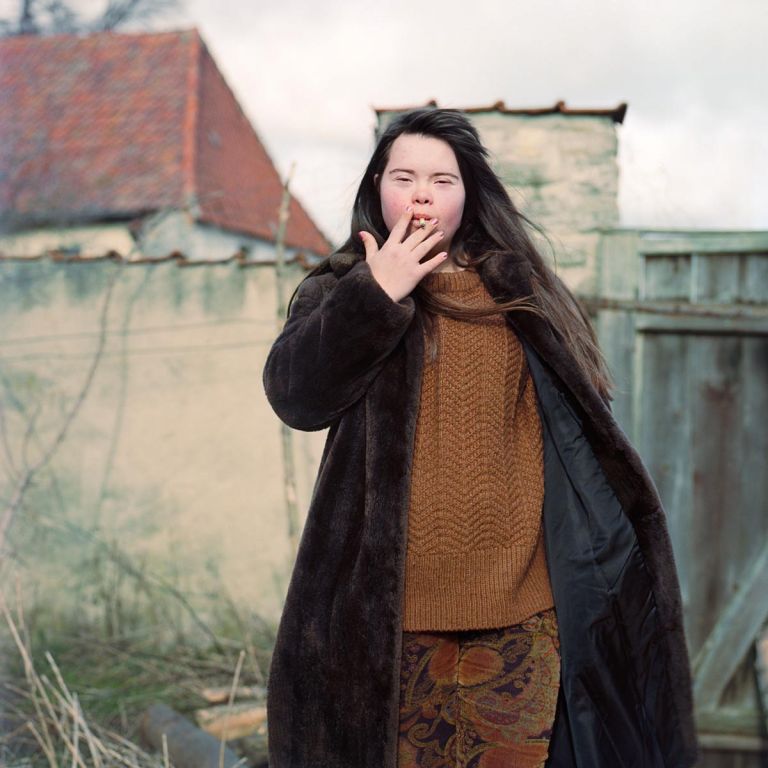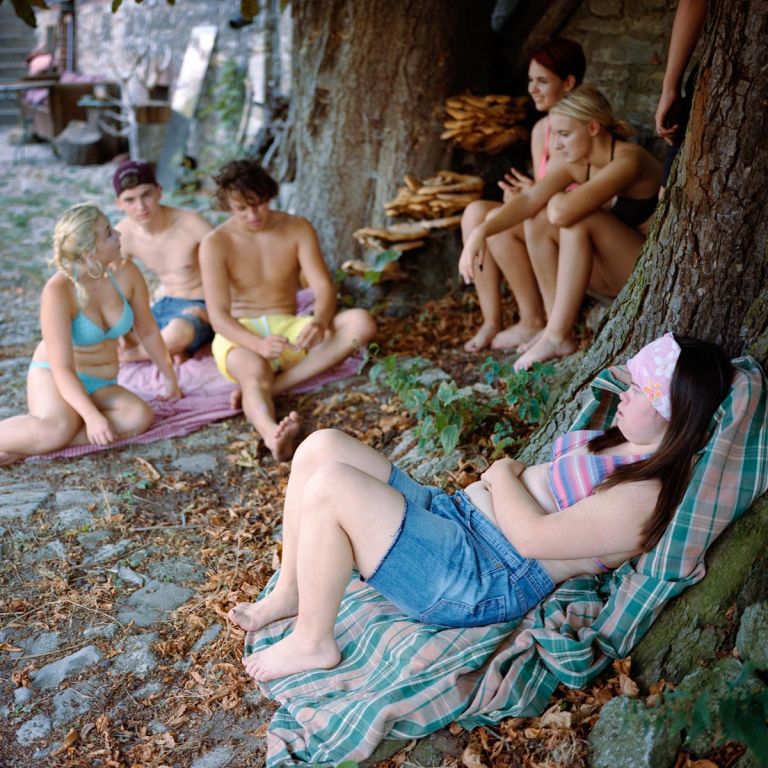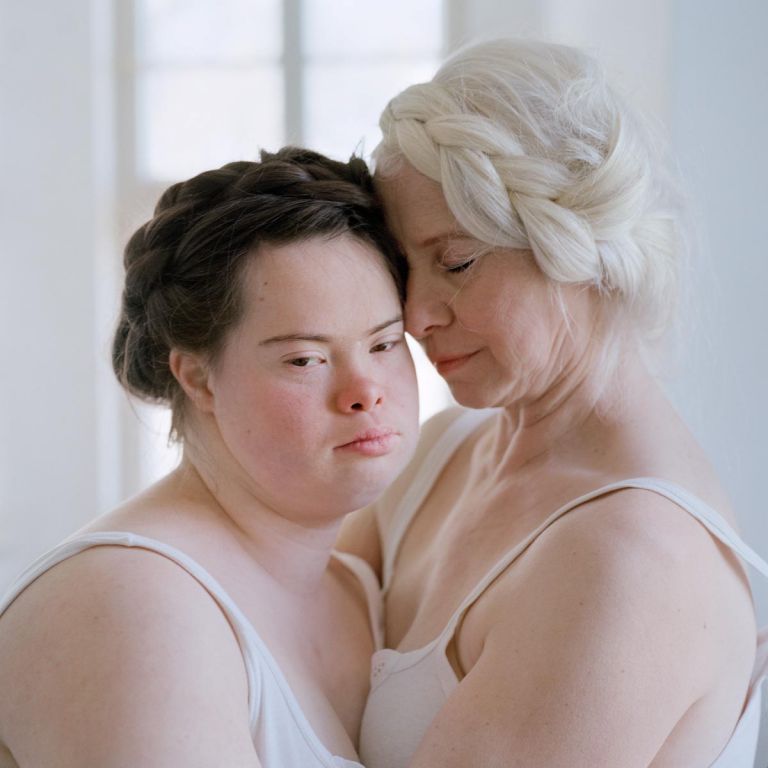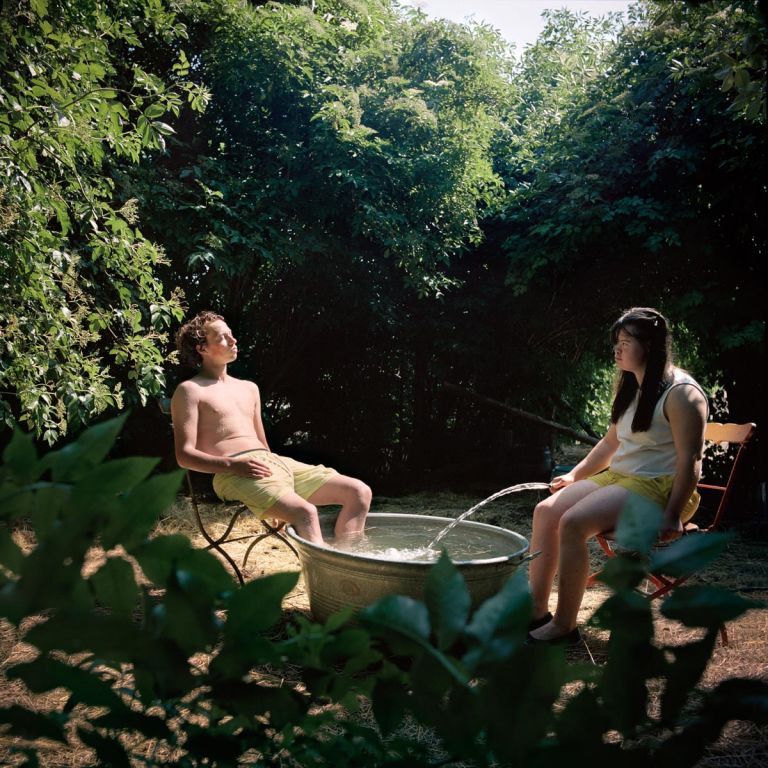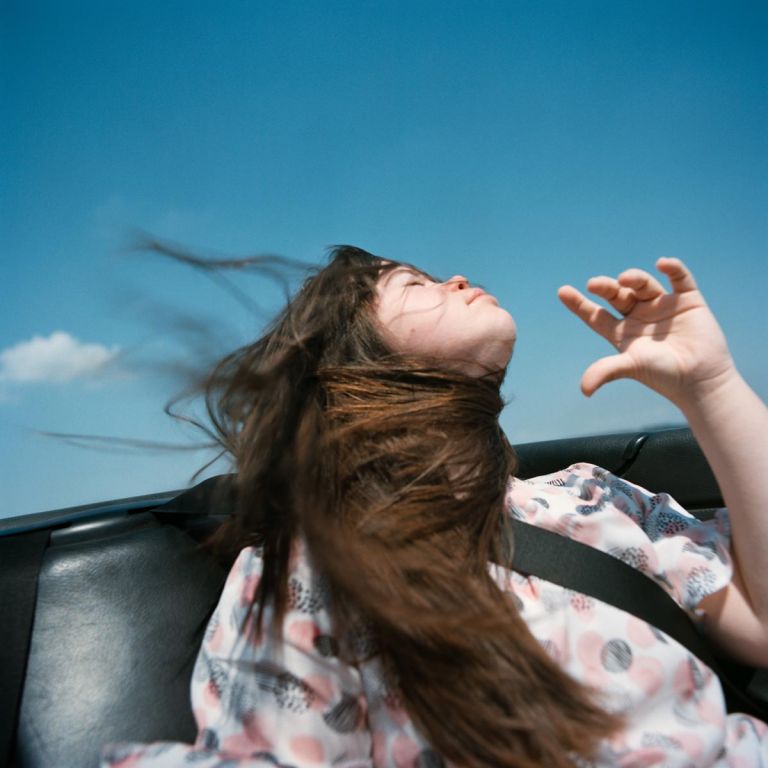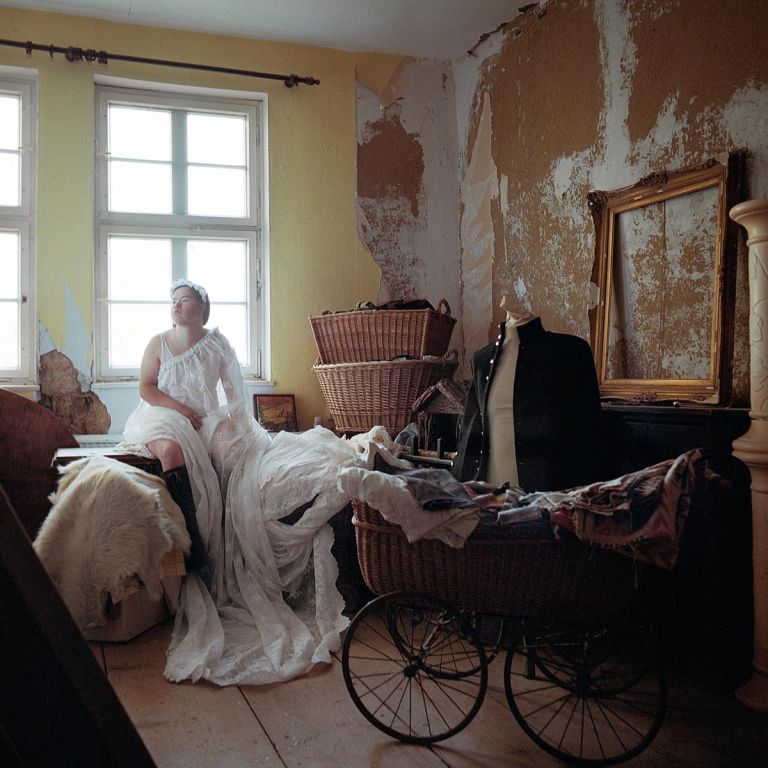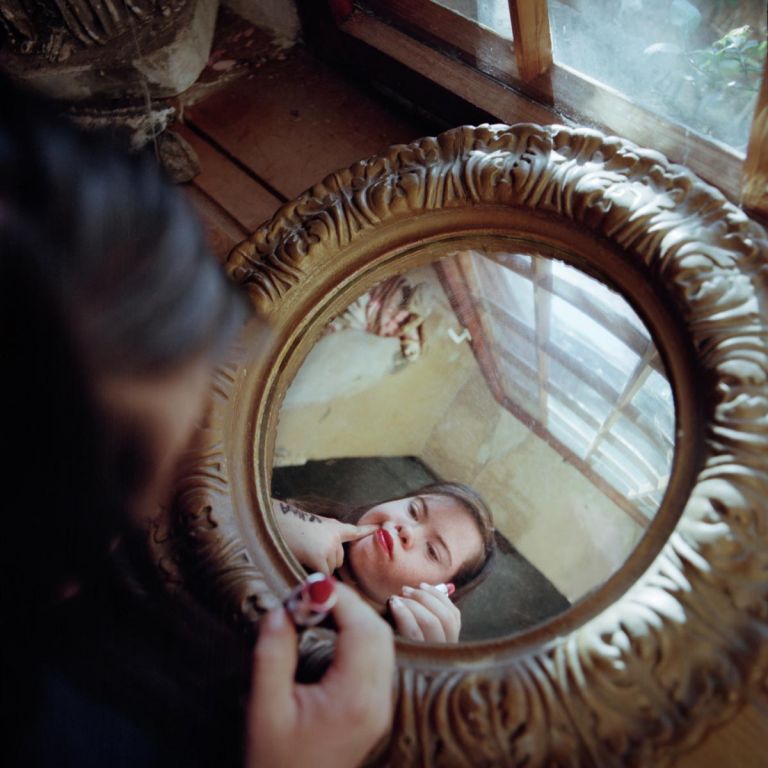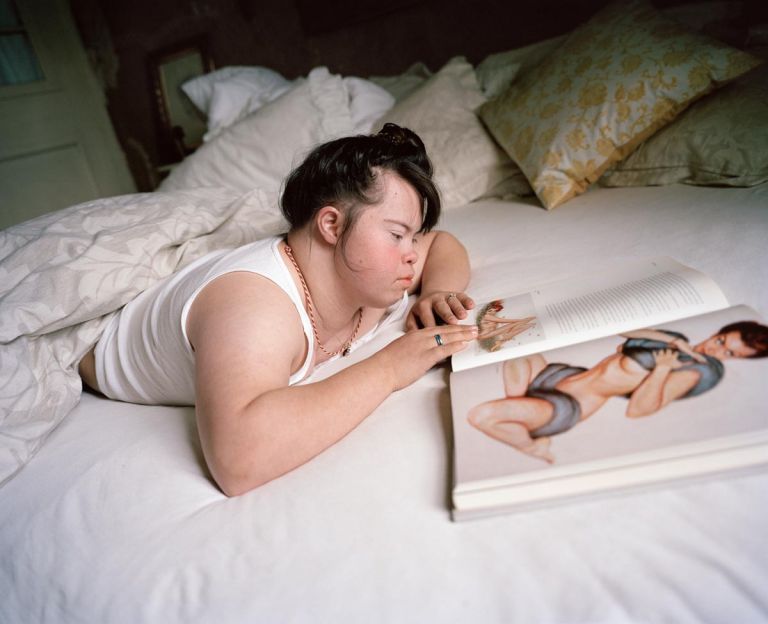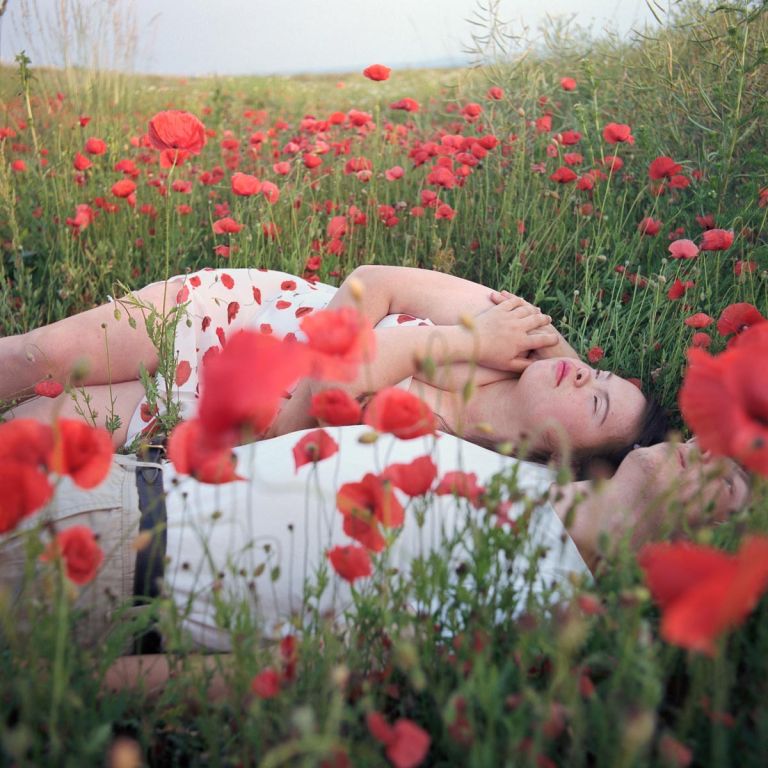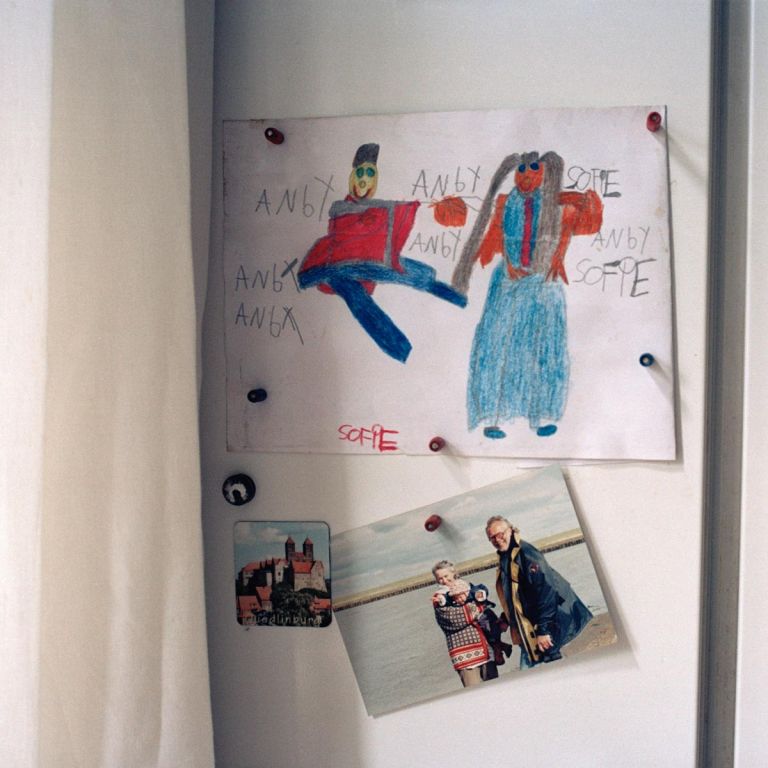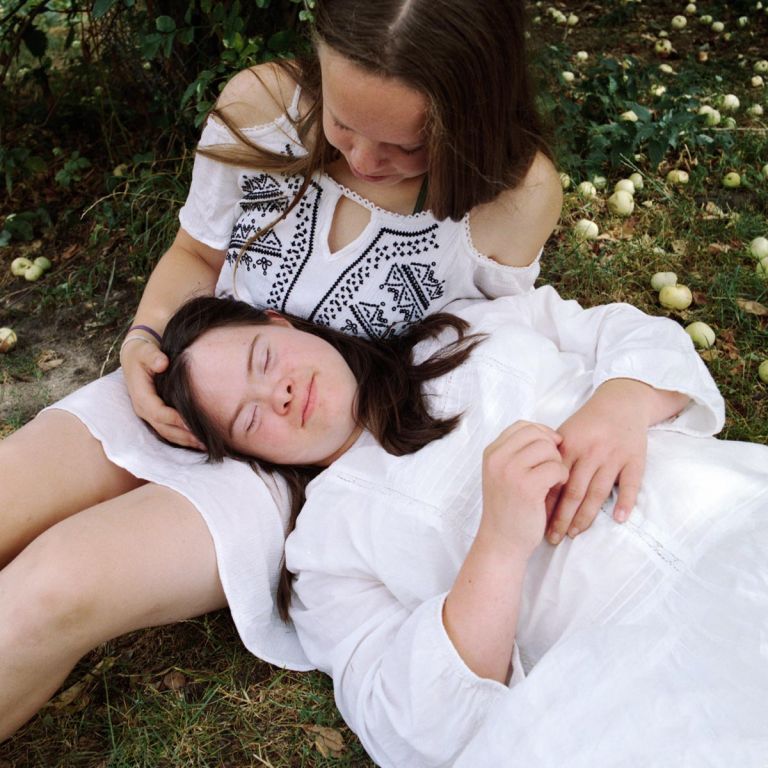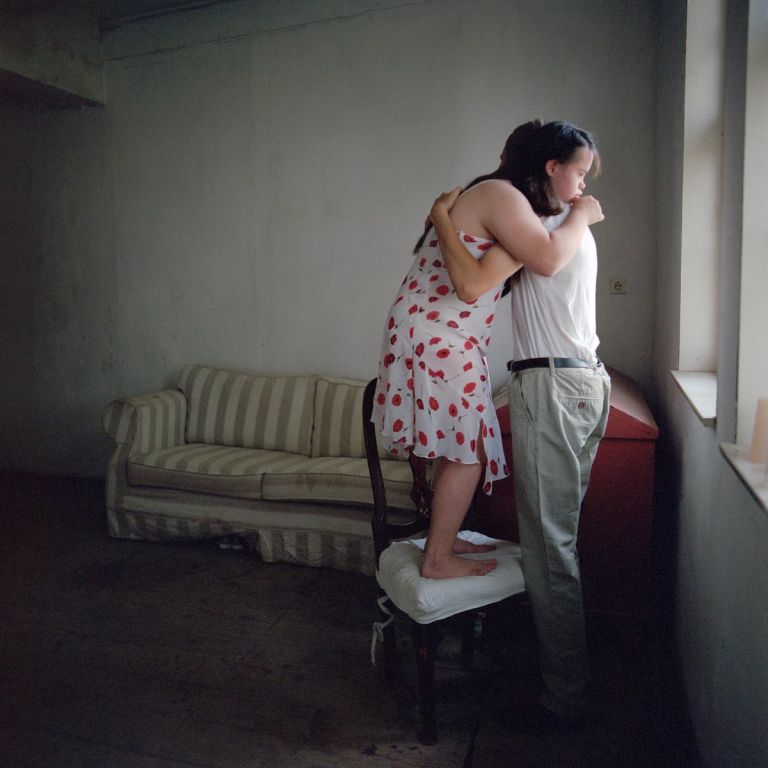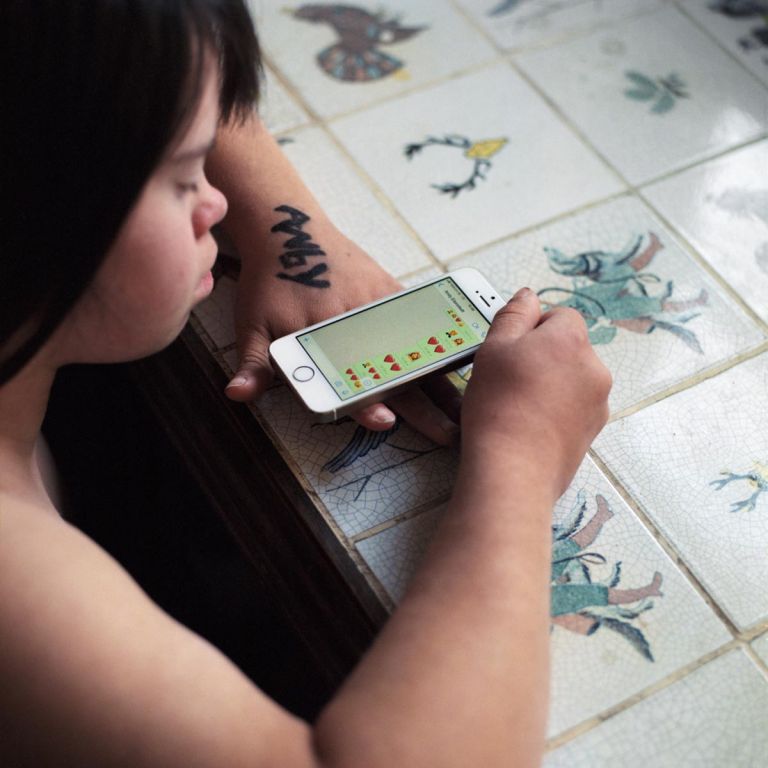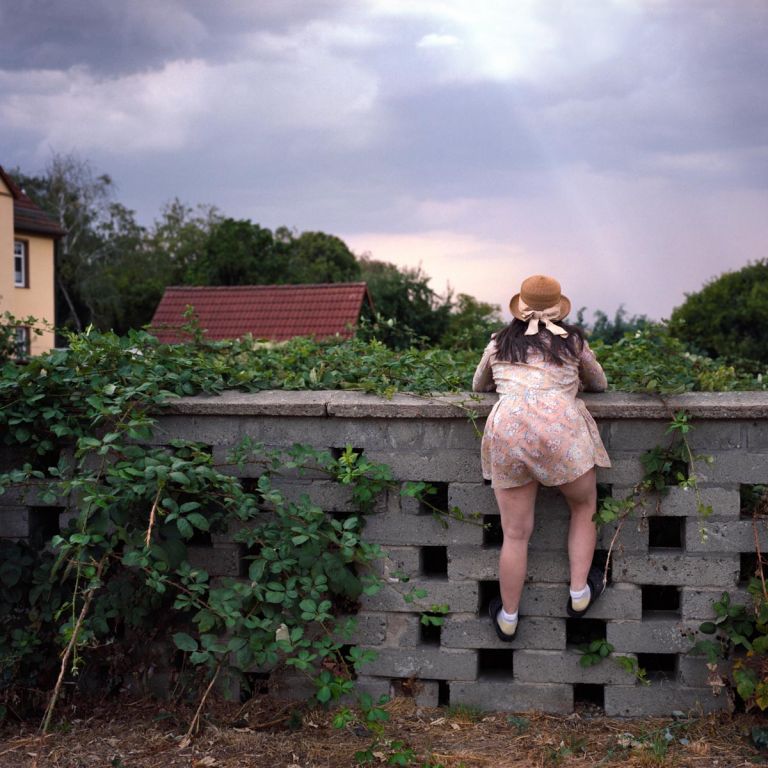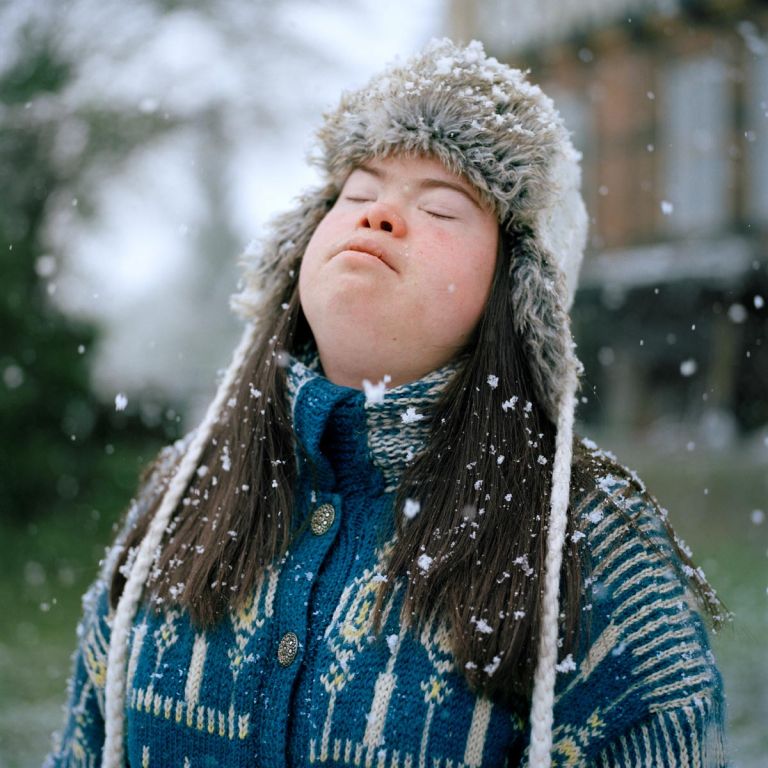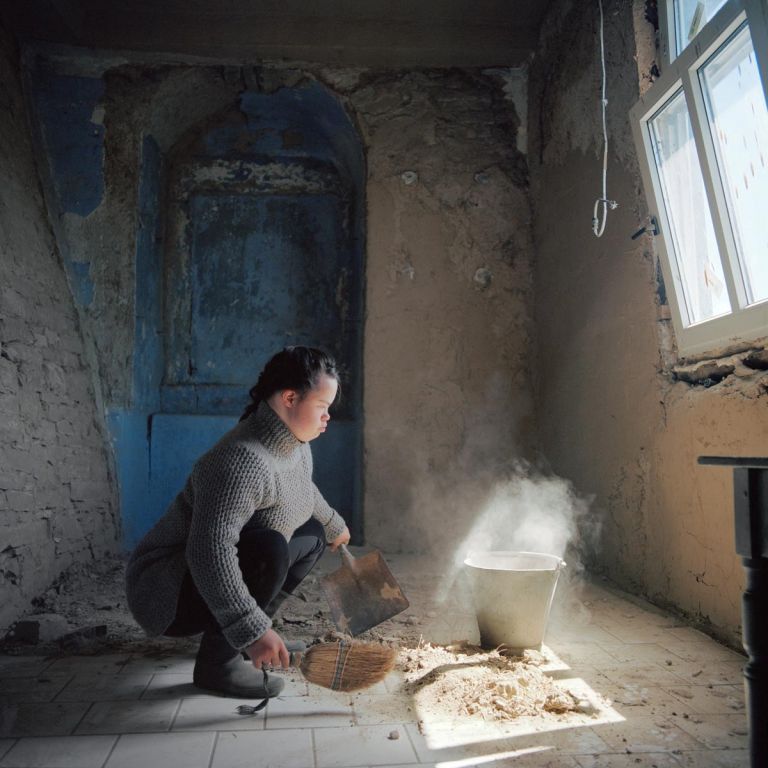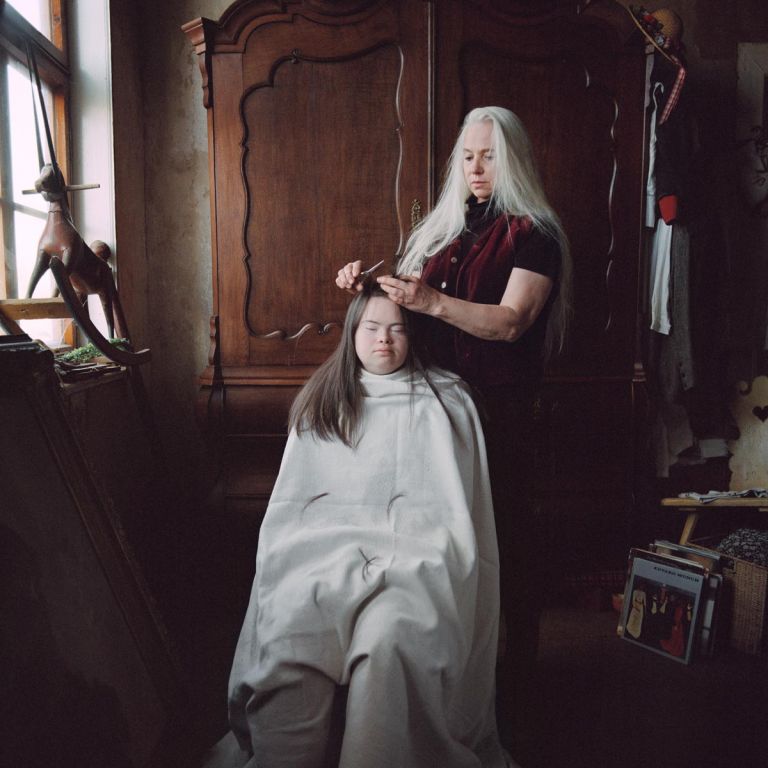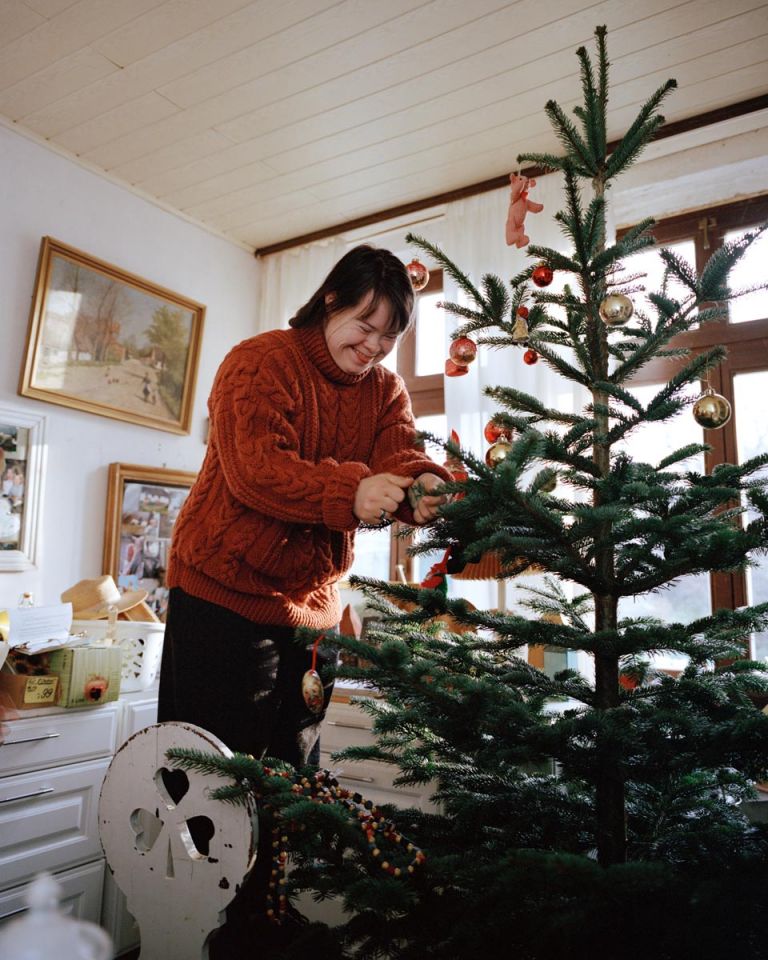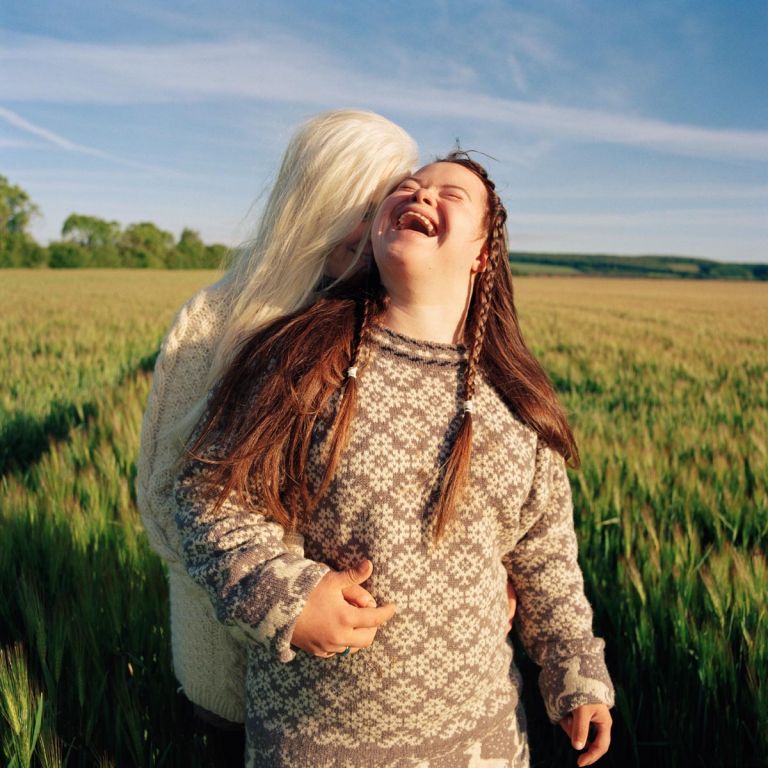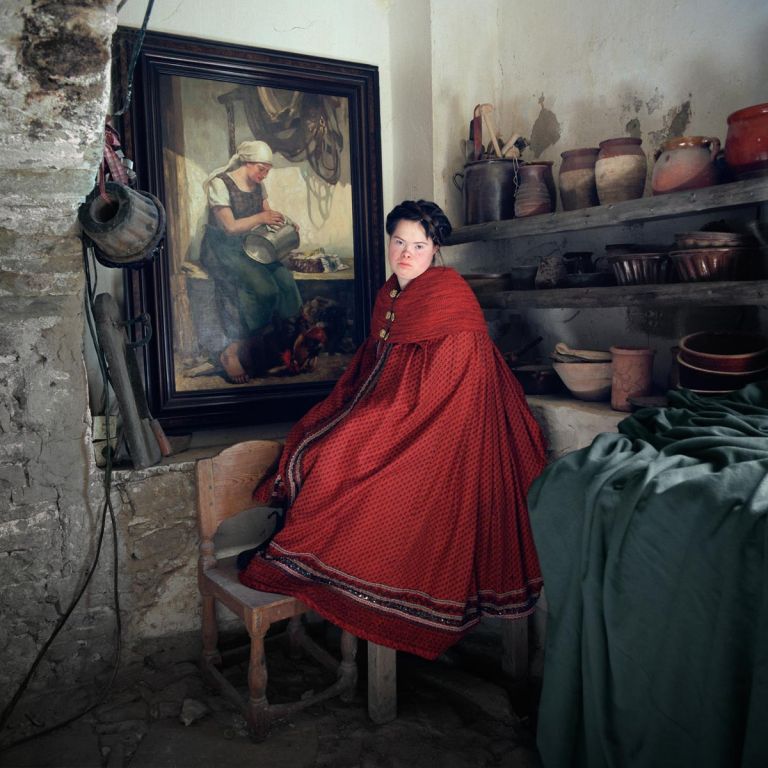Snezhana von Büdingen, Germany
Snezhana von Büdingen at first documented the intimate love between mothers and their children with Down syndrome in a series of portraits taken in a studio in Cologne. But the vitality and diversity of her intimate long-term project with Sophie makes her hope to take down the “imaginary boundaries” between us and the life of the others. Boundaries made of “prejudices and ignorance”. We people, she says, “definitely need more acceptance, more integration, more love.” And she recognizes herself in Sophie. In Sophie’s need for freedom and rebellion, too, which alternates with quiet and almost magical moments.
It is “the beauty of being different” that the photographer wants to show – und we feel that she has succeeded in a delightful and electrifying way. And that this is an extraordinary project in what was already a convincing photographic career. Snezhana von Büdingen was born in Perm in Russia, trained to be a photographer in Cologne and lives in Bonn. Her work has been published in Time, British Journal of Photography, Spiegel, deVolkskrant, and elsewhere, shown in galleries and at photo festivals in Italy, Spain, France, Germany and the US. And she was among the finalists and winners of major awards in Europe and the US.
“Little Mongol” is what people with Down syndrome used to be called. A cute sounding term. And a term that families with a child with Down syndrome experienced as derogatory. The term is no longer used. We now talk of Trisomy 21. Or of Down syndrome.
Does that make everything alright? Improved methods of early diagnostics have triggered a new debate: Should people with Down syndrome be born at all? Because, after all, they are handicapped, by our standards. A burden, by our standards. A disruption of perfection, a problem, by our standards, just not aborted in time.
Anyone who is not affected should keep quiet on this. Those not affected can have the pros and cons for free. It is a completely different thing to really engage with people with Down syndrome. And to celebrate them as thoroughly and intimately and gently as photographer Snezhana von Büdingen has done for four years now.
Meeting Sofie. Snezhana von Büdingen got to know her in autumn 2017, at the home of the girl, then 18 years old, a farmstead dating back to the 16th century in the village of Eilenstedt in the federal land of Sachsen-Anhalt. A fairy-tale garden, a house full of antiques and old paintings. It is like out of a different era, says the photographer, dreamy, harmonic, full of peace. And in it this special young woman. Self-assured, at peace with herself, who likes pretty clothes, is in love with a young man, gripped by lovesickness, secure in her family. In transition from child to adult, with all that entails in searching and trying things out and small dramas.
(Text by Peter-Matthias Gaede)
Artist statement
How far should a pre-birth diagnosis go? From an ethical perspective, prenatal tests are quite controversial. Critics see them as a targeted search for sick children in their mothers’ wombs – for embryos with Down syndrome. They also question what this medical control means for people living with this condition – for their rights to assistance, participation and inclusion. Inclusion means giving people with handicaps a presence and visibility within society – and photography is one means of doing so. With my series Meeting Sofie I want show the beauty of “being different” and thus to contribute to greater acceptance, integration and love among us humans.
